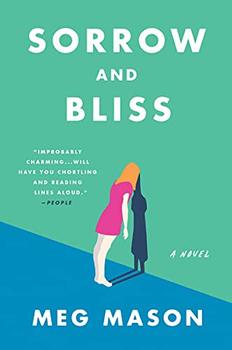Summary | Excerpt | Reviews | Beyond the Book | Readalikes | Genres & Themes | Author Bio

Even when it was winter, with all the windows open, the house would be hot and heaving and full of sweet smoke. Ingrid and I were not excluded or made to go to bed. All night, we made our way in and out of rooms, pushing through throngs of people—men who wore tall boots or boiler suits and women's jewelry, and women who wore petticoats as dresses over dirty jeans, Doc Marten boots. We were not trying to get anywhere, only as close to them as possible.
If they told us to come over and talk to them, we tried to sparkle in conversation. Some treated us like adults, others laughed at us when we were not meaning to be funny. When they needed an ashtray, another drink, when they wanted to know where the pans were because they had decided to fry eggs at three a.m., Ingrid and I fought each other for the job.
Eventually my sister and I would fall asleep, never in our beds but always together, and wake up to the mess and the murals spontaneously painted on bits of wall that had not been Umbrian Sunrised. The last one ever conceived is still there, on a wall in the bathroom, faded but not enough so that you can avoid studying the foreshortened left arm of the central nude from the shower. When we first saw it, Ingrid and I feared it was our mother, painted from life.
Our mother who, on those nights, drank wine out of the bottle, plucked cigarettes from people's mouths, blew smoke at the ceiling, laughed with her head tipped back, and danced by herself. Her hair was still long then, still a natural color, and she was not fat yet. She wore slips and scraggy fox furs, black stockings, no shoes. There was, briefly, a silk turban.
Generally speaking, my father would be in the corner of the room talking to one person; occasionally, holding a glass of something and reciting The Rime of the Ancient Mariner in regional accents to a small but appreciative crowd. Either way, he would give up and join my mother as soon as she started dancing because she kept calling him until he did.
He would try to follow her lead and catch her when she had spun herself beyond standing up. And he was so much taller than her—that is what I remember, he looked so tall.
I had no way to describe the way my mother looked, how she seemed to me then, except to wonder if she was famous. Everyone drew back to watch her dance, despite the fact that it was only spinning, wrapping her arms around her own body, or waving them above her head like she was trying to imitate the movement of seaweed.
Worn out, she would sag into my father's arms but seeing us at the edge of the circle, say, "Girls! Girls, come here!" excited again. Ingrid and I would refuse but only once because when we were dancing with them, we felt adored by our tall father and funny, falling-over mother and adored, as the four of us, by the people who were watching, even if we didn't know who they were.
Looking back, it is unlikely our mother knew them either—the object of her parties seemed to be filling the house with extraordinary strangers and being extraordinary in front of them, and not a person who used to live above a key-cutter. It was not enough to be extraordinary to the three of us.
* * *
For a while, when I lived in Oxford, my mother sent me short emails with nothing in the subject. The last one said, "I am being sniffed by the Tate lot." Ever since I left home, my father has posted me photocopies of things written by other people. Open and pressed down on the glass, the pages of the book look like gray butterfly wings, and the fat, dark shadow in the center like its body. I have kept them all.
The last one he sent was something by Ralph Ellison. With a colored pencil, he had highlighted a line that said, "The end is in the beginning and lies far ahead." Next to it, his tiny handwriting in the margin: "Perhaps there is something in that for you, Martha." Patrick had just left. I wrote across the top of the page, "The end is now and I can't remember the beginning, that is the whole point" and posted it back.
Excerpted from Sorrow and Bliss by Meg Mason. Copyright © 2021 by Meg Mason. Excerpted by permission of Harper. All rights reserved. No part of this excerpt may be reproduced or reprinted without permission in writing from the publisher.
Your guide toexceptional books
BookBrowse seeks out and recommends the best in contemporary fiction and nonfiction—books that not only engage and entertain but also deepen our understanding of ourselves and the world around us.